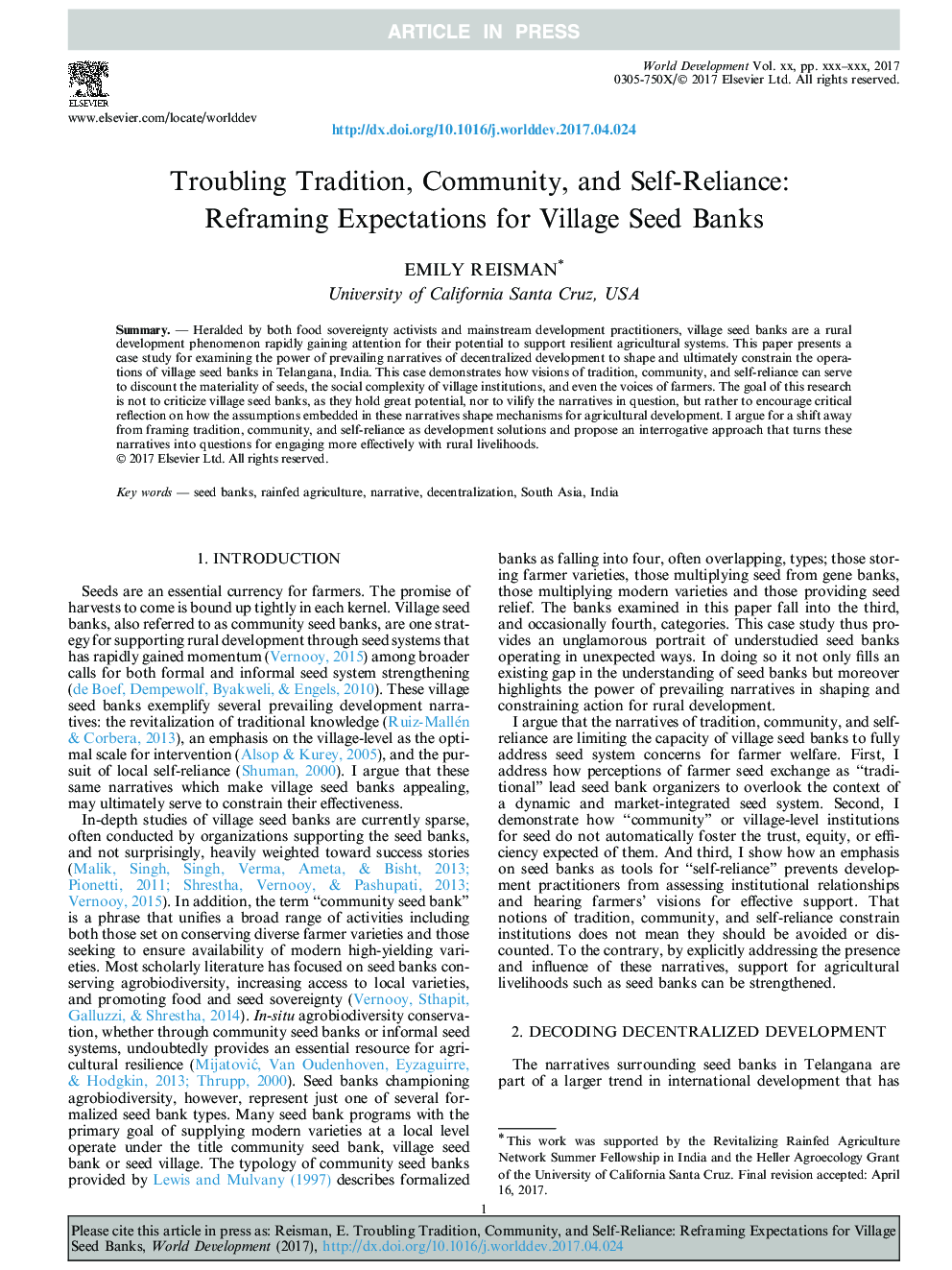| Article ID | Journal | Published Year | Pages | File Type |
|---|---|---|---|---|
| 5105137 | World Development | 2017 | 9 Pages |
Abstract
Heralded by both food sovereignty activists and mainstream development practitioners, village seed banks are a rural development phenomenon rapidly gaining attention for their potential to support resilient agricultural systems. This paper presents a case study for examining the power of prevailing narratives of decentralized development to shape and ultimately constrain the operations of village seed banks in Telangana, India. This case demonstrates how visions of tradition, community, and self-reliance can serve to discount the materiality of seeds, the social complexity of village institutions, and even the voices of farmers. The goal of this research is not to criticize village seed banks, as they hold great potential, nor to vilify the narratives in question, but rather to encourage critical reflection on how the assumptions embedded in these narratives shape mechanisms for agricultural development. I argue for a shift away from framing tradition, community, and self-reliance as development solutions and propose an interrogative approach that turns these narratives into questions for engaging more effectively with rural livelihoods.
Related Topics
Social Sciences and Humanities
Economics, Econometrics and Finance
Economics and Econometrics
Authors
Emily Reisman,
